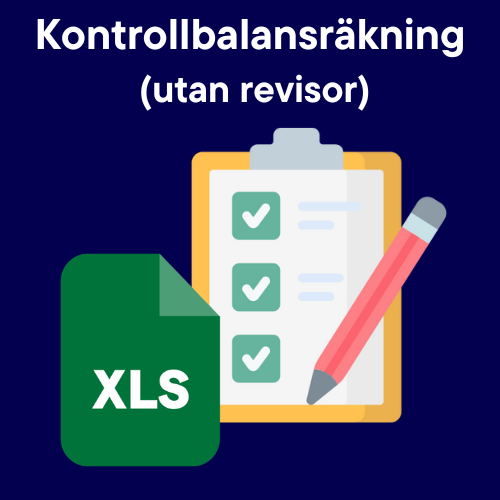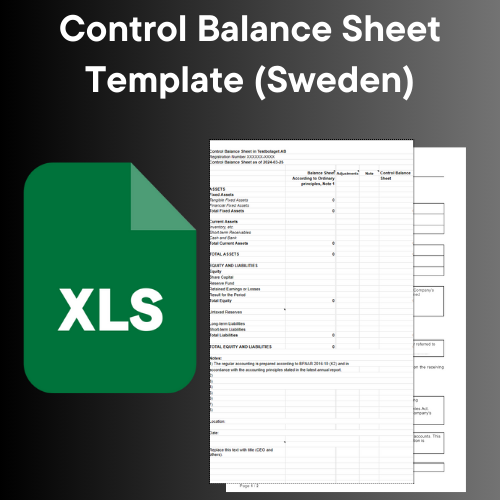When is a control balance sheet required?
Share
Requirements for Creation of a Control Balance Sheet
Table of Contents
- When is a Control Balance Sheet Required?
- Why Carry Out a Control Balance Sheet?
- Laws and regulations
- Common Control Balance Scenarios
- Summary
When is a Control Balance Sheet Required?
When a limited company finds itself in a situation where its equity is believed to be less than half of the registered share capital, or if the company does not have sufficient assets to pay off its debts according to the liquidation code, an obligation arises according to the provisions of the Companies Act. According to these laws, the board is responsible for preparing and having the company's auditor (if the company has chosen to have an auditor) review the control balance sheet. The control balance sheet does not need to be submitted to the Swedish Companies Registration Office.
Why Carry Out a Control Balance Sheet?
A control balance sheet is drawn up and is important based on several aspects. A control balance sheet is a critical tool for assessing a company's financial position when financial problems are suspected. By reviewing assets, liabilities and equity, a control balance sheet provides a clear picture of the company's financial health and its ability to meet its obligations.
By following the provisions of the Companies Act and carrying out a control balance sheet when necessary, a limited company can take responsibility for its financial position and take measures to ensure its long-term sustainability and survival in the market. This may include identifying and addressing any deficiencies in the company's financial processes and taking steps to strengthen its capital base.
By acting proactively and complying with legal requirements regarding control balance sheets, a limited company can minimize the risk of financial problems and strengthen the confidence of its shareholders, investors and other stakeholders. This, in turn, can contribute to securing the company's long-term success and sustainability on the market.
Laws and regulations
To create a control balance sheet, the limited liability company must comply with the Annual Accounts Act. When calculating the amount of equity, certain adjustments can be made. The board, with at least half of the members, must sign the control balance sheet. If one or more members have a different opinion, it must be noted in the board minutes and attached to the balance sheet.
Read more on the Accounting Board's website for additional information on control balancing and related laws and regulations.
Common Control Balance Scenarios
A limited company must prepare a control balance sheet in several different scenarios and situations. Here are some examples of when this may be necessary:
- Suspicion of loss of half of the share capital: If there are suspicions that the company's equity has decreased to less than half of the registered share capital, according to the provisions of the Companies Act, the company must draw up a control balance sheet to assess the exact financial position.
- Enforcement under the Bankruptcy Code: If the company is subject to enforcement under the Bankruptcy Code and it is discovered that the company lacks sufficient assets to cover its debts, a trial balance sheet may be required to be prepared to evaluate the true financial situation.
- Changes in the company's operations or restructuring: If there are major changes in the company's operations, such as mergers, acquisitions or disposals of significant assets or lines of business, it may be necessary to prepare a control balance sheet to reflect these changes in the company's accounting.
- To meet requirements of external stakeholders: Sometimes external stakeholders, such as banks, investors or lenders, may require a company to prepare a control balance sheet to assess its financial strength and stability before entering into business transactions or granting financing.
- Audit or review of the company's accounts: In some cases, auditors or auditors may request that a company prepare a control balance sheet as part of their review of the company's accounts to ensure their accuracy and reliability.
Summary
By being aware of these different scenarios and following legal requirements and best practices for financial reporting, a limited company can ensure that it prepares control balance sheets when necessary to assess its financial position and meet its obligations to stakeholders.


